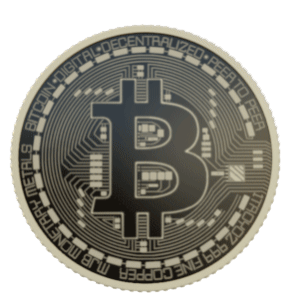Bitcoin, Explained Global Business Consultant Center
- Global Business Consultant ltd

- Dec 27, 2022
- 2 min read
Did you know around 17% of the US adult population now owns bitcoin? There’s no denying that crypto has gone mainstream.
From mining to the mystery around who invented bitcoin, there’s still confusion around this new and powerful technology despite increased adoption.
This article covers everything you need to know about bitcoin basics, the risks you should be aware of, and how to get started.
What is Bitcoin?
Bitcoin (abbreviated BTC) is digital money that can be used to make secure peer-to-peer transactions on the internet without the need for a third party intermediary (like a bank) to facilitate transactions.
It was created by an open-source community in part due to banks’ detrimental actions during the Great Financial Crisis of 2008, which involved governments printing money and bailing out the financial institutions responsible for the crash.
At its core, Bitcoin allows the user to “be their own bank” eliminating the need to get permission from a company to complete a transaction. On the bitcoin network there are no restrictions on who a user can send money to and how much money can be sent, and operations run around the clock not just during business hours.
Beyond enabling users to “be their own bank” bitcoin also “banks the unbanked”, as financial services cost money to set up and maintain.
From initial deposits, to withdrawal, and membership fees, there are currently over two billion unbanked individuals in the world.
Bitcoin itself can be used as a store of value or medium of exchange that only exists in the digital domain. You cannot hold or see bitcoin.
The Bitcoin network and the bitcoins that power the network were created to be used on the internet, it is not owned by anyone or company — it is a true open payment network that anyone with an internet connection can access.
What can you do with bitcoin?
Use it like money. Accepted by many companies including Starbucks and Virgin Galactic, Bitcoin can be used to make purchases.
Transfer funds more quickly and cheaply. Funds can be transferred more efficiently (peer to peer) without high processing fees by the removal of a third party intermediary like a bank or payment processor.
Use it as a store of value. A store of value should be worth the same or more over time. Bitcoin is often referred to as ‘digital gold’ — it’s limited in supply with specific use-cases. Amidst its volatility — bitcoin has appreciated over 15k% since conception.
How do you “get” bitcoin?
You can buy bitcoin using fiat currency (e.g. USD, GBP, EUR) through a Brokerage or Exchange like Blockchain.com.
You can sell something and accept payment in bitcoin.
You can “mine” bitcoin using specialized computer equipment. (more on this below).





Comments